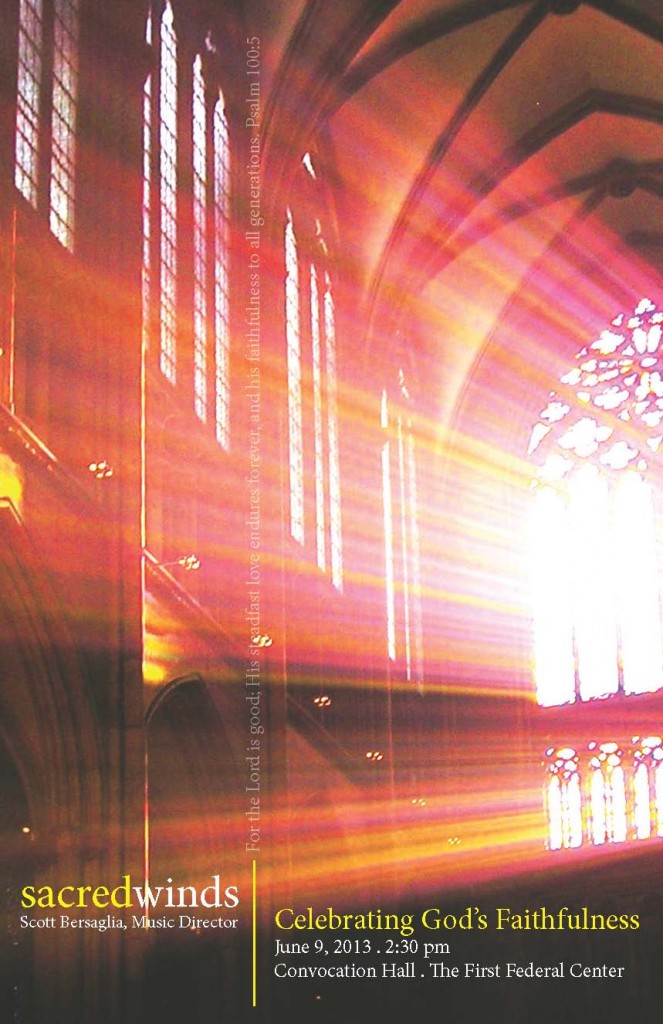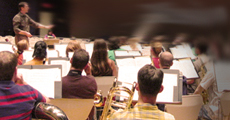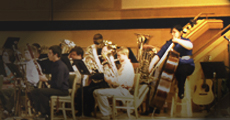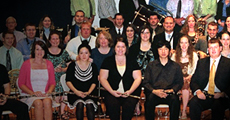Declaration | Psalm 100:1-2
By James E. Castlen
Make a joyful noise to the LORD, all the earth! Serve the LORD with gladness! Come into his presence with singing! Psalm 100:1-2
This psalm emphasizes God’s universal kingship. It is an exhortation to all peoples everywhere to praise and thank God for His greatness, goodness, loving kindness, and faithfulness. The first two verses are instructive as we consider approaching God when His people gather for public worship.
v1. Make a joyful noise (ESV); shout joyfully (NASB)
God’s people are enjoined to utter a joyful shout of loyalty, homage, and worship. The most basic emotions that are suitable for worship of God are (1) contrition because of our sins; (2) humility before God as creatures before our Creator; and (3) joyful exuberance because He invites and welcomes us into His presence, even though we are sinful and He is holy. There is a time to be quiet and meditative in worship and a time to be joyfully exuberant (cf. Eccl. 3:4, 7b)—both are appropriate based on Scripture content and Holy Spirit leadership, direction, and empowerment (cf. Jo. 4:23-24).
To the Lord (ESV, NASB)
This speaks of the vertical (Godward) aspect of worship. While the horizontal (manward) aspects include fellowship, encouragement, challenge, testimony, etc., the vertical aspects include confession, praise, thanksgiving, supplication, etc., which can only be directed toward God Himself. LORD is Yahweh, the covenant name for God—implies that we know Him in covenant relationship that includes our personal faith in Him and His redemptive acts on our behalf. We are properly oriented to biblical worship when we realize that He is God and we are not. Thus, both God and we are in our rightful places as this perspective in worship is established and practiced.
All the earth! (ESV, NASB)
Since the LORD is the Creator of all people—as well as all things—all the peoples of the earth, including the Gentiles, are exhorted to worship God with joyful shouting. Part of the reason for God choosing Israel out of all the peoples of the earth is that they would reveal God not as exclusively their God, but rather as the God of the whole earth and of all peoples everywhere. Since God’s creative handiwork and glory are seen in every land, therefore He is to be praised and thanked in every land (cf. Ps. 67). Of course, this will occur in the future before the heavenly throne as people from every tribe, tongue, people, and nation lift their voices in praise and adoration of the One who has redeemed them by His blood (Rev. 5:9). Thus, we are presently called to engage in worldwide missions that there may eventually be universal worship of the one true God.
v2. Serve the Lord (ESV, NASB)
Since He alone is our LORD and King and we are His subjects, He is to be served by us. Since He is all-sufficient in Himself, He is in no way enriched by our service or our worship. On the other hand, neither is His joy as the Triune God diminished one iota if we withhold our worship. We serve Him because He alone is worthy to be served and adored. Though we can in no way repay Him for His redemptive love to us and His drawing us to Himself in repentance and faith, true believers will seek to serve the Lord with every fiber of their being and live for His glory alone (Rom. 14:7-8).
With gladness (ESV, NASB)
Since He is a gracious, good, and faithful God, we should serve Him with joy and gladness and not grudgingly (2 Cor. 9:7; cf. Ps. 104:34; 122:1).
Come into his presence (ESV); come before Him (NASB)
During Old Testament times only Levites could do the acts of worship in the tabernacle performing certain rites and rituals at prescribed times and seasons. The High Priest alone was privileged to enter the Most Holy Place only once a year during the Day of Atonement (Lev. 16). Once Jesus died, however, and the curtain in the Temple was torn in two, everyone who desires may come into His presence. He even bids us to come boldly/confidently before the throne of grace to obtain grace and mercy in our time of need (Heb. 4:16). Oh, what an unspeakably blessed privilege every believer has now, to enter the holy place by the blood of Jesus and to draw near to the Living God with a sincere heart in full assurance of faith…for He who promised is faithful (Heb. 10:19:23).
With singing! (ESV); with joyful singing (NASB)
We are not to come, as Spurgeon has said, with melancholy and the solemnity of a funeral, but rather as if bidden to a marriage feast. Though we approach the throne of the God of the universe with reverence and awe, we do so not in cringing fear or with weeping and wailing, but with joyful psalms and hymns. The singing of God’s people anticipates the musical worship around heaven’s throne, where prayers of petition and supplication give way to the vocal expressions of praise and thanksgiving as the sole manner of adoration of the blessed Deity. The exhortation to come into His presence with singing presupposes a personal relationship with the God whom we worship, as expressed by Isaac Watts:
Let those refuse to sing who never knew our God;
But children of the heavenly King may speak their joys abroad.
Oh, let us aspire to worship God rather than work for Him! In the Scriptures, we note that work for God always follows the worship of God. As with Isaiah (Isa. 6:1-10) and the church at Antioch (Acts 13:1-5), if we worship Him aright, our work for Him will flow out of that worship with joy and fruitfulness.
James E. Castlen (DMA, The Southern Baptist Theological Seminary) is Director of Missions for the Three Forks Baptist Association in Hazard, KY. Along with his wife, Shelby, they have a combined years of over 70 years of national and international missions service for the Gospel.





